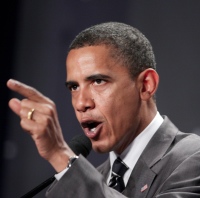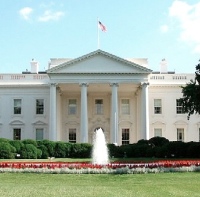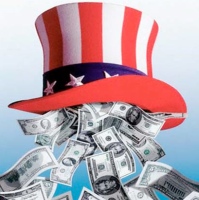- About Us
- Columns
- Letters
- Cartoons
- The Udder Limits
- Archives
- Ezy Reading Archive
- 2024 Cud Archives
- 2023 Cud Archives
- 2022 Cud Archives
- 2021 Cud Archives
- 2020 Cud Archives
- 2015-2019
- 2010-2014
- 2004-2009
 |
Ezy Reading: |
There’s little doubt that the American tax code is currently in dire need of reform, simplification and a closing of existing loopholes. It’s also true that the so-called ‘Buffett Rule’, a tax named after billionaire Warren Buffett and championed by the Obama Administration wasn’t going to be the solution to all of America’s tax and revenue woes. The intent of the proposed tax was to apply a minimum effective tax rate of at least 30% on all those Americans earning more than one million dollars a year. This April, Gallup and CNN polls indicated that the tax was favored by over 60% of Americans, but others argued that such a tax rate would only lower America’s national debt by a mere 1%. Lost in a haze of political infighting and posturing, and ignoring the evident will of those who elected them into office, the Buffett tax failed to get the 60 Senate votes necessary to overcome a filibuster and went down 51 to 45 on April 16th.
The intent of the proposed tax was to apply a minimum effective tax rate of at least 30% on all those Americans earning more than one million dollars a year. This April, Gallup and CNN polls indicated that the tax was favored by over 60% of Americans, but others argued that such a tax rate would only lower America’s national debt by a mere 1%. Lost in a haze of political infighting and posturing, and ignoring the evident will of those who elected them into office, the Buffett tax failed to get the 60 Senate votes necessary to overcome a filibuster and went down 51 to 45 on April 16th.
What irks about this entire debate, however, is not that the Buffett Tax was meant to solve all of America’s revenue problems –it never could- but that it should be framed by certain opponents as a Democratic party strategy solely aimed at initiating class warfare for the sake of securing votes in the ballot box. Politics is a dirty game and there’s little doubt that some Democrats did hope the Buffett tax might convince voters that the Republican Party will only ever want to protect the wealthy from paying taxes. But this emphasis ignores the fact that reducing 1% of the national debt would still have been better than reducing none at all, and even the most modest of estimates indicated that the Buffett Tax would have added nearly $37 billion dollars to U.S tax revenue.
Politics is a dirty game and there’s little doubt that some Democrats did hope the Buffett tax might convince voters that the Republican Party will only ever want to protect the wealthy from paying taxes. But this emphasis ignores the fact that reducing 1% of the national debt would still have been better than reducing none at all, and even the most modest of estimates indicated that the Buffett Tax would have added nearly $37 billion dollars to U.S tax revenue.
But at a time when there is so much inequality and specifically income inequality in America, one could argue that as opposed to ‘warfare’ perhaps some slightly more tempered class ‘bickering’ wouldn’t be such a bad thing. We’re not talking here about demonizing individuals who have worked tirelessly to earn their just rewards and also give back to the community (indeed, the Obama administration specified exemptions from the Buffett Tax for those individuals earning over a million dollars a year that were already making significant contributions to charity). At the same time it is an absolute fallacy to suggest that America’s millionaires have not benefited at least at some point from the direct results of tax revenue, whether it impacted upon the government-maintained roads that paved a way to their businesses, or government-subsidized programs that trained their staff, or government-funded hospitals that cared for them when ill, and sent them back to work in a timely manner.
We’re not talking here about demonizing individuals who have worked tirelessly to earn their just rewards and also give back to the community (indeed, the Obama administration specified exemptions from the Buffett Tax for those individuals earning over a million dollars a year that were already making significant contributions to charity). At the same time it is an absolute fallacy to suggest that America’s millionaires have not benefited at least at some point from the direct results of tax revenue, whether it impacted upon the government-maintained roads that paved a way to their businesses, or government-subsidized programs that trained their staff, or government-funded hospitals that cared for them when ill, and sent them back to work in a timely manner.
The fact is that America’s wealthiest pay less in taxes as a portion of income than any other citizens. Currently, long-term capital gains are taxed at a maximum of 15% so as to encourage investment. This means that the wages of the working and middle classes are taxed higher than the investment incomes of the rich. It’s impossible to see how demand in an economy can go up if the middle class has no money to spend and the vast proportion of the rich are hoarding away money or only spending it on their own wellbeing. It’s almost as if we’re giving permission in a modern economic setting to the archaic exploitation of workers in favor of oligarch employers. Because when you assault labor with a higher rate of tax than investments, that is exactly the kind of immoral and unethical practice that you’re validating.
Yet Republicans steadfastly loathe the idea of raising taxes and argue that taking a bigger bite out of the income of America’s wealthiest stifles their role as ‘job creators’, discourages entrepreneurial risk taking, will kill small business and limits the ‘trickle down effect’ on the economy of their success impacting upon others. Recently Republican Senator Kay Bailey Hutchinson employed scare tactic rhetoric by asserting that the Buffett Tax could spell an end to what would be ‘the next Google or Facebook’. This ‘trickle down effect’ argument is trotted out ad nauseum by right wing politicians and pundits alike, even as it has been well established over the past 50 years that cutting taxes on the richest simply does not improve the economic standing of working or middle class Americans. How do we know this? Because in recent years, the U.S has lowered taxes on ‘job creators’ more than they have at any other time in history. The conceit of Republicans willing to tell their electorates in achingly poor states like Mississippi, Arkansas and Alabama that it’s a bad thing to tax the rich is beyond staggering. And this is all set alongside another glaring reality: most small businesses in America aren’t earning more than a million dollars a year, so these individuals that Republicans feared would suddenly stop expanding payrolls and taking risks would have remained unaffected by a Buffett Tax anyway.
And this is all set alongside another glaring reality: most small businesses in America aren’t earning more than a million dollars a year, so these individuals that Republicans feared would suddenly stop expanding payrolls and taking risks would have remained unaffected by a Buffett Tax anyway.
The Buffett Tax, true enough, would not have made a great difference to America’s national debt, nor would it have ‘rescued’ an overly complex, loop-holed tax system. But as an expression of faith in the will of the voters and a real intent to move towards evening out economic inequality it would have been hugely symbolic, even as, again, $37 billion dollars is nothing to shrug at. The Buffett Tax needn’t have been viewed, as it was by many opponents, as a ‘distraction’ away from necessary tax reform. It could have instead inspired and complemented such reform, but instead the proposal was politicized to the detriment of this nation’s working and middle classes. And yet, in a Presidential election year when Obama’s opponent, Mitt Romney, has paid an income tax rate of 15% on annual earnings of over $20 million dollars –far lower than what most middle-class Americans pay- it’s hard to imagine that this issue will go away, Buffett Tax or not, anytime soon. The wellbeing of what drive’s America’s economy the most –our workers- depends upon it.
Ezy Reading is out every month. Send your comments to feedback@thecud.com.au
